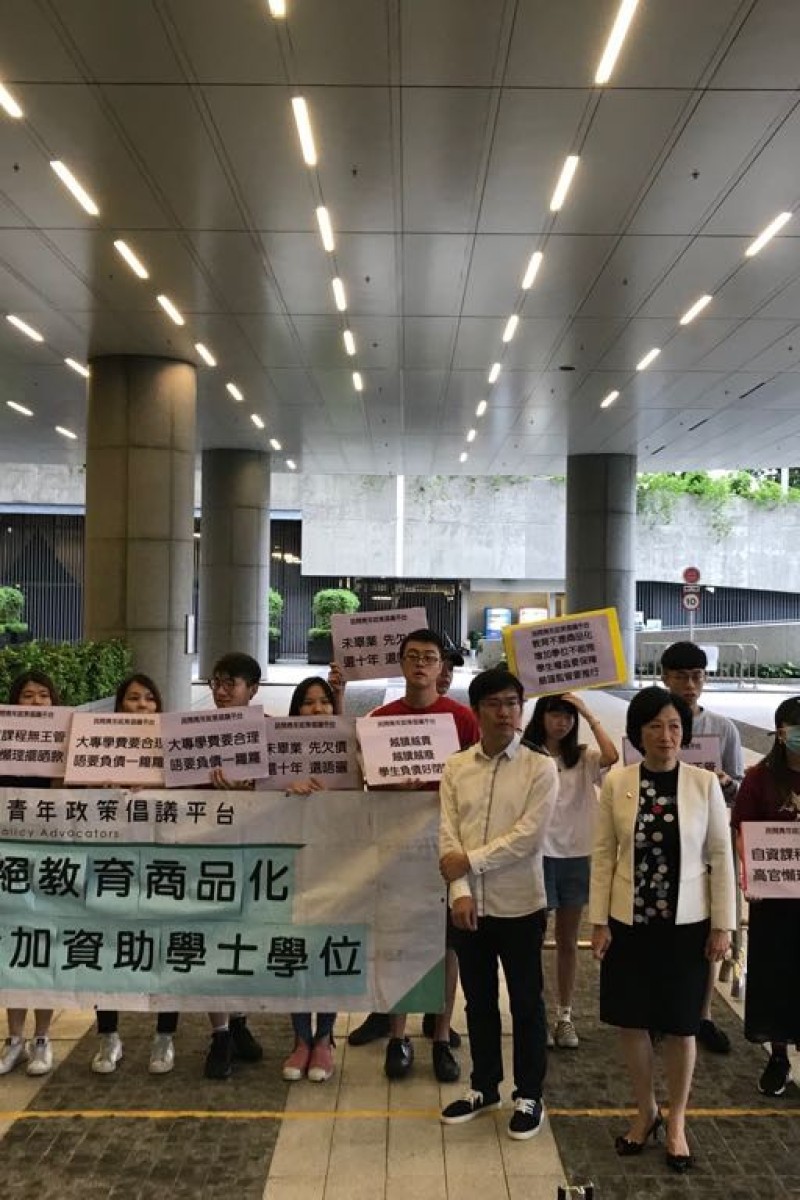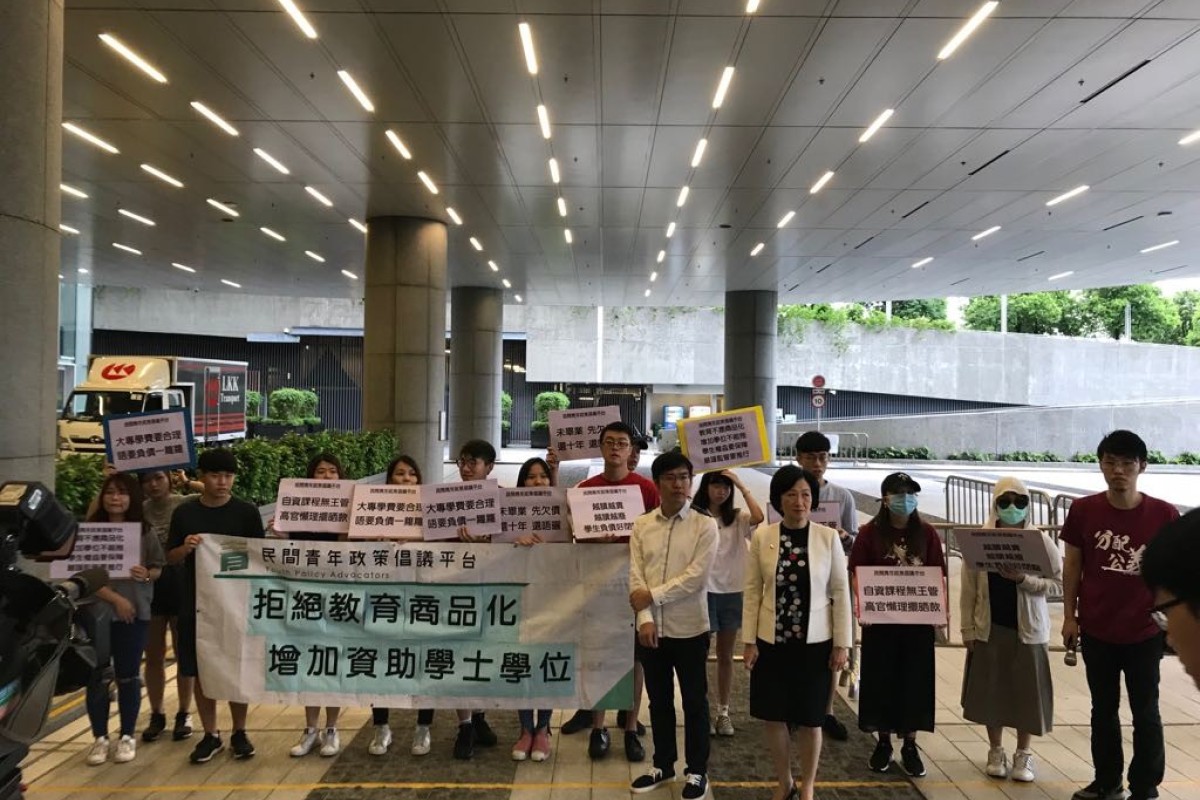
Hong Kong students call for more publicly funded university places
A youth concern group says there are not enough subsidised university places, and this means too many students have to fund their own education
 Youth Policy Advocators believe there need to be more subsidised university places.
Youth Policy Advocators believe there need to be more subsidised university places.Members of a concern group have staged a rally outside the Legislative Council, calling for the government to increase the number of publicly funded university places.
Youth Policy Advocators staged a rally on Friday morning ahead of a meeting of the Legislative Council Panel on Education.
The group said that in the 2017-2018 academic year, there were around 21,000 students who met the minimum university entry requirements, but the government only provided around 15,000 subsidised university places. This meant more students had to fund their own education at self-financed educational institutions.
Self-financing courses in Hong Kong needs better regulation, says special task force
They added that many of the courses at these institutions were of poor quality and lacked recognition, making it difficult for students to develop their careers.
The concern group is calling for an increase in the number of spaces in courses funded by the University Grants Committee, along with improved regulation of self-financed degrees to ensure quality education.
The group members submitted their proposals to the education panel. They also handed a petition to a representative of the Secretary for Education.
One student at the rally is currently studying in a self-financed degree programme. She said the huge differences in the number of students studying in each department in her faculty means she often studies things that are irrelevant to her major.
“In one department, there are 100 students, while there are fewer than 10 students pursuing my major,” she said. “With such extreme differences in numbers, teachers are incapable of taking into account the needs of the minority. Have I paid my school fee for nothing?”